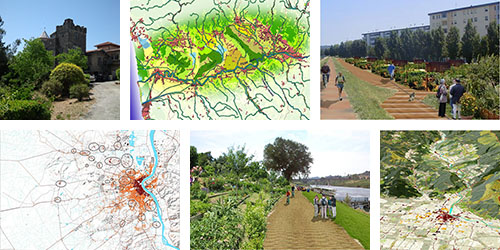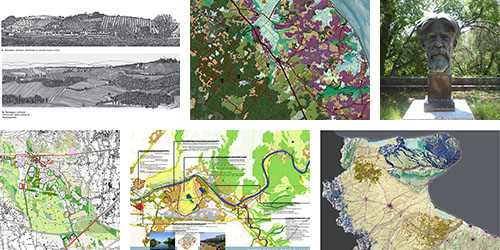PROBIUR Urban Bioregion Project
|
The phenomena related to urbanisation have taken forms and developed dynamics that underline questions that are no longer approachable through traditional disciplines. The unbalance that has been generated presents problems not only of an eco-systemic and environmental resilience nature, but also concerning the maintenance of the cultural and socio-economic model that those settlement practices represent, and which is centred on the financialization of the economy, and therefore abstracted from the contextual reality of the region itself. The issues concerning the study and definition of models, operative processes and design techniques are placed within a more general interpretative paradigm so as to redefine the quality principles and criteria concerning the region and a long-lasting development in accordance with a co-evolutive relationship between human society and the territory it inhabits. Within this scenario the School of the University of Florence devoted to the study of the territory, and promoted by Alberto Magnaghi, has for over two decades developed reflections and experiences, expressed especially through research projects of national interest and financed by MIUR, PhD research activities, research on specific projects, agreements with public entities, and experiences regarding regional and landscape planning and design. This sort of experimentation needs further development to achieve a methodological/operative systematization of the bio-regional model. This is to be obtained through comparison with international case studies, in particular within the framework of European policies regarding the territory and the city.
In terms of scientific aims the purpose of the unit is to:
In terms of operational aims the purpose of the unit is to:
Recent research projectsAmongst the projects undertaken and currently under way are collaborations with PRIN and agreements with entities and Life+ projects. We collaborate especially with the public administration at the various levels, with agencies and autonomous entities, mixed-economy institutions, socio-economic and third sector associations which deal with regional territorial issues. In accordance with the fundamental priorities as defined by the research and innovation Programme “Orizzonte 2020”, the priority denominated “Society's Challenges” identifies a series of areas which may be dealt with through the Bio-region Project research unit. Amongst which the following:
|
Coordinator
Alberto Magnaghi
DISPAA Dept. Of Sciences of agrofood production and of the environment S. Benedettelli
GESAAF Management of food, agrarian and forestry systems I. Bernetti
DST Dept. of Sciences of the Earth S. Carnicelli
DISEI Dept. of Business anc Economics G.V. Lombardi DISPS Dept. of Political and Social Sciences M. Morisi
DICEA Dept. of Civil and Enviromental Engineering F. Sacerdote
DIEF Dept. of Industrial Engineering Carla Balocco
CREAR D. Chiaramonti |
Last update
18.05.2021


